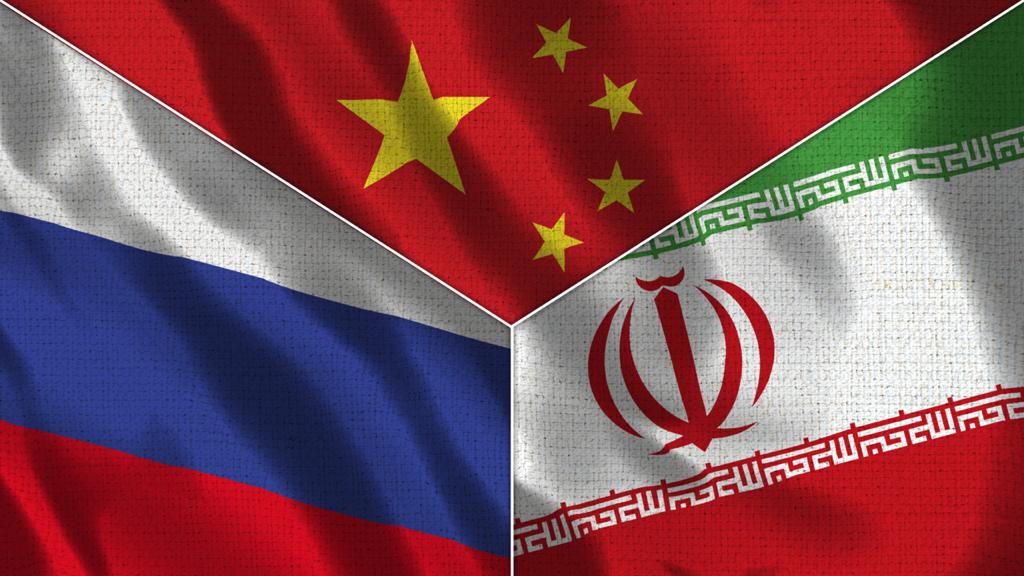New Iranian President Ibrahim Raisi seeks to improve relations with China and Russia, which aligns with the vision of the Iranian regime’s supreme leadership; represented by the Republic’s Supreme Leader Ali Khamenei. The strengthening of Iran’s relations with these two countries is not however likely to be acceptable in the West and could impact the course of talks on the nuclear issue. Iran’s relations with Russia and China, which appear to focus on economic and military issues, are expected to have significant geopolitical implications for the Arab region, particularly with respect to Syria and Iraq.
Looking East
Improving relations with Russia and China is likely to be prioritized by Iran’s new President Raisi. In this respect, Iran and Russia will soon be renewing their full cooperation agreement, first signed in March 2001, and renewed every five years since that time. Raisi will meet with his Russian counterpart, Vladimir Putin on the sidelines of the Shanghai Cooperation Organization Summit, to be held in Tajikistan on September 16th-17th. The new government is also expected to take steps to activate a strategic cooperation agreement with China signed last March, with a duration of 25 years, which entails a $400 Billion investment by China in Iranian infrastructure and energy projects.
Iran’s expanding scope of cooperation with China and Russian could impact the Arab region in a number of ways, including:
- Influencing the future of Syria: Russian and Iranian support has tipped the balance of power in Syria towards the Assad regime, and Iran is now interested in consolidating its political position on both the regional and international levels, especially following the presidential elections, held on May 26th, which resulted in President Bashar Al-Assad winning by 95.1%.
In this respect, it was noteworthy that during The Chinese Foreign Minister Wang Yi’s visit to Iran in July, the first in almost a decade, Yi put forward an initiative regarding Syria, which can be considered to coincide with Iranian interests. The initiative proclaims respect for Syria’s national sovereignty and territorial integrity and calls for abandoning the idea of regime change. It focuses on the acceleration of the reconstruction process, and the lifting of all unilateral sanctions, in addition to combatting terrorism, and finding a comprehensive solution to address differences among various Syrian factions.
This initiative signals a significant change in Chinese policy. Even though it had previously supported the Syrian regime, using its veto power in the Security Council in its favor, China had, until recently, supported the idea of a transitional governing body in Syria as a way out of the crisis. China now appears to have abandoned this idea, the initiative refers to “letting go of illusions concerning regime change”, bringing it in line with Iran’s position, which has continued to support the Syrian regime since the start of the crisis in March 2011.
- Limiting the scope of Vienna negotiations: If the Vienna negotiations resume, Raisi’s administration may seek additional support from China and Russia to limit the negotiations to the nuclear deal and avoid expanding its scope to include Iranian interference in the Arab region, especially in Iraq, Lebanon, Syria and Yemen. The latter is an issue which Arab countries are keen to have addressed in the negotiations.
In this respect, Moscow has rejected calls by some Western countries to expand the scope of the nuclear negotiations. The Russian delegate to international organizations, Mikhail Ulyanov, declared on July 5 that “the attempt to expand the Vienna negotiations, which aim to revive the nuclear agreement, to include other topics, will not work,”. He noted that “some officials seek to include other issues such as regional security and missiles in the negotiations, which is an attempt to hit three birds with one stone that is unrealistic.”
It is therefore unlikely that any deal in Vienna will include an agreement regarding these thorny issues, but that Iran will continue its meddling in the domestic affairs of Arab countries, as it is currently doing in Lebanon, Iraq, Syria, and Yemen.
- Expanding Chinese influence in Iraq: China is expressing more interest in undertaking reconstruction projects in Iraq, within a broader framework of engagement that also includes signing deals to import Iraqi oil. China had signed eight agreements with Iraq in 2019, during former Iraqi Prime Minister Adel Abdul-Mahdi’s visit to Beijing. The agreements include a framework for financial credit, a memorandum of understanding for economic reconstruction, an agreement for cultural and technical cooperation, the development of infrastructure for transportation, communication, housing and energy. In conjunction with China’s strategic cooperation agreement with Iran, signed last March, China has paved the way to include both Iraq and Iran in its Belt and Road initiative, and has expanded its options in terms of oil supplies.
- Enhancing Iran’s military capabilities: Iran hopes to improve on its military capabilities, a deal in Vienna, in which Iran succeeds in persuading the Biden administration to lift the weapons embargo, could allow Iran to pursue this goal. China and Russia would be likely candidates to provide weapons to Iran, allowing it to strengthen both its air and land forces. This could potentially impact several crises in the Arab region, in view of Iran’s support to its allied militias parties to these ongoing conflicts . Iran’s support of these militias has in fact led to an exacerbation of tensions and prevented the conclusion of political agreements to these crises.
- Influencing outcomes in Afghanistan: The three countries may move to expand the scope of their coordination to deal with the fallout from the US military withdrawal from Afghanistan. It is noteworthy that they have all maintained lines of communication with the Taliban. They aim to dissuade the Taliban from targeting their interests, as well as enhancing their position in the new political and security arrangements that are being formulated in Afghanistan. One of the possible repercussions of this coordination could be weakening the influence of terrorist groups like Al-Qaeda in Afghanistan, which may lead them to move their leaders and members to other areas in which they have support, such as some countries in North Africa and the Sahel region, as well as Somalia.
It can be said that the lack of trust between Iran and Western countries, especially the United States of America, will be the hallmark of their relations in the near future, even if a deal is reached in Vienna. It is therefore likely that Iran will continue to strengthen its relations with China and Russia, which will have an impact on the various crises in which Iran is a principal player, especially those involving Arab countries.

